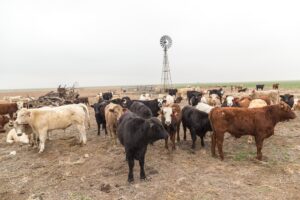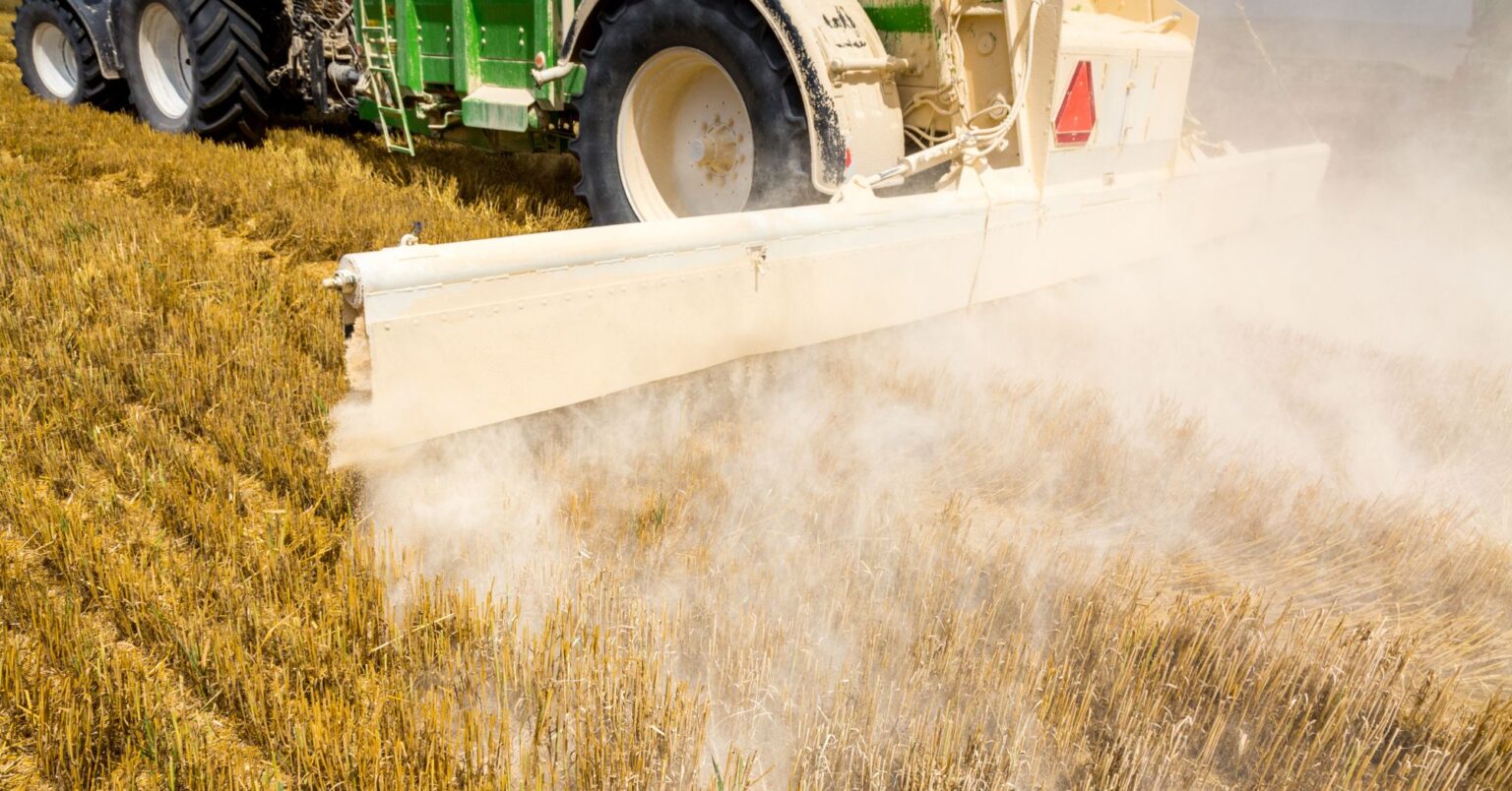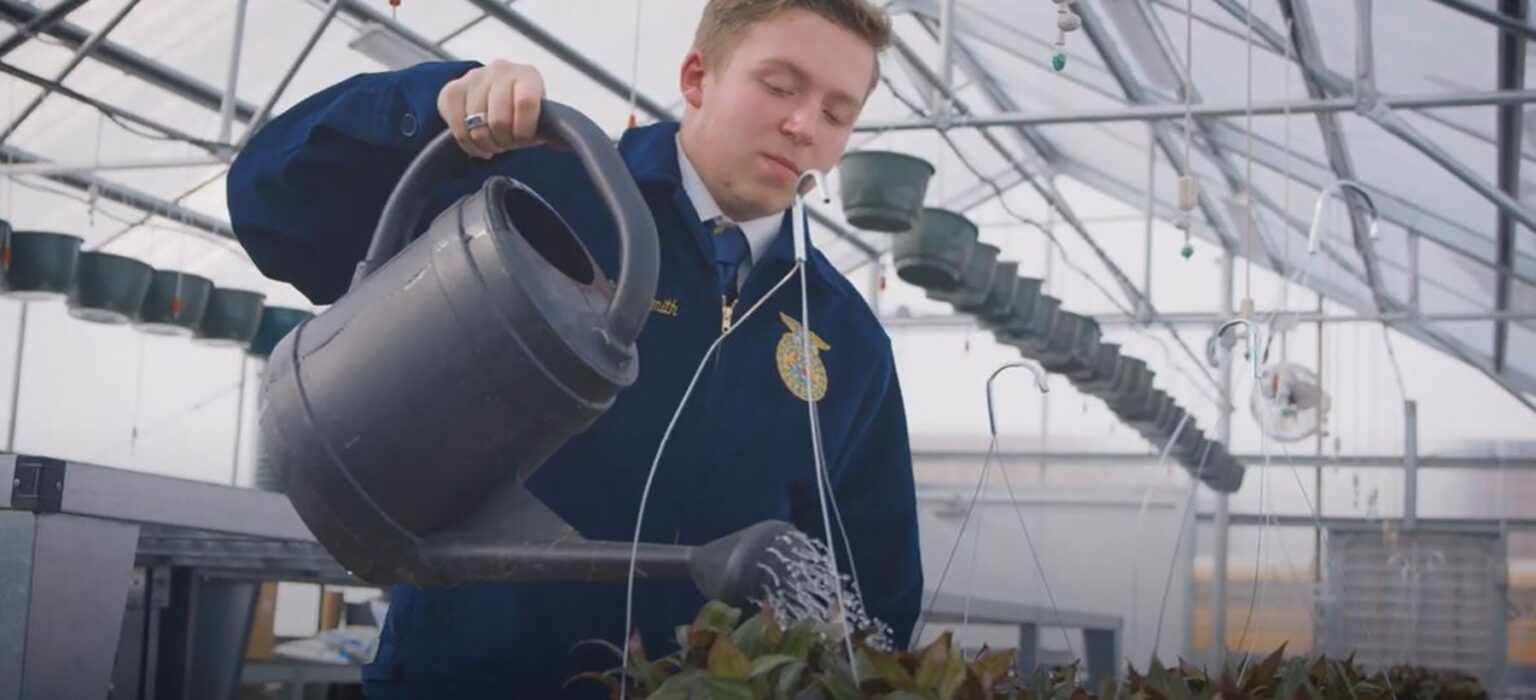Subscribe to Updates
Get the latest agriculture news and updates directly to your inbox.
Author: staff
By Tim Carpenter TOPEKA — Kansas officials issued a public notice after testing confirmed the invasive Asian longhorned tick was identified in Franklin County and posed an emerging threat to animal and human health. It was the first known detection in Kansas of the prolific tick, which afflicts wildlife, pets and livestock. The tick is a hazard for cattle as it infects red and white blood cells and causes weakness, fever, loss of appetite or death. The reddish-brown tick is known to carry a variety of pathogens and has proven efficient at establishing populations in new areas due to its ability…
By Cami Koons PERRY — JBS USA broke ground Tuesday on its “state of the art” sausage making facility and celebrated with city and state leaders a “turning point” for the Perry community. The roughly 110-acre site on the southeast side of Perry is slated to be operational a year from now and officials said the plant would add a second shift about six months later, to hit the full 500-job metric. JBS officials said Tuesday a portion of the sausage made at the facility will go to JBS’ recently purchased facility in Ankeny that will make ready-to-eat sausage and bacon. Rick…
By Isabel Teles and Ana Mano SAO PAULO, Oct. 13 (Reuters) – Brazil’s soybean planting for the 2025/26 season reached 14% of the expected area as of Thursday, marking the third-fastest progress for the date in the world’s largest producer and exporter, agribusiness consultancy AgRural said on Monday. Brazilian soybean farmers are expected to cultivate the oilseed on a little over 48 million hectares (118.610 million acres) this season, according to private consultancies. Hedgepoint Global reiterated expectations on Monday that soybean production will be 178 million tons in 2025/26, an all-time record if confirmed. The pace of sowing is up from 9% a week earlier and ahead of the 8%…
By Ryan Hanrahan Politico’s Rachel Shin reported that “the government shutdown is creating financial heartburn for farmers across the country, stalling the delivery of farm loans, the release of critical market reports, and the Trump administration’s plans for cash bailouts.” “Producers of row crops like corn, wheat and soybeans have for months been weathering tariff uncertainty and high input costs for things like fertilizer and machinery, while hoping that President Donald Trump will open new markets for their products or send them financial assistance, as he did during his first-term trade war with China,” Shin reported. “The absence of those…
The National FFA Organization is one of six national organizations to each receive a $10 million grant from Lilly Endowment Inc. These grants are being awarded through the latest round of Lilly Endowment’s initiative, Character Development Through Youth Programs, which helps youth-serving organizations with a nationwide reach create, test, implement and sustain strategies that support character development in young people ages 5 to 18. This grant will enable National FFA to expand its current efforts of character development to regional and local levels that will benefit states, teachers and students. “We’re deeply honored to receive this support from Lilly Endowment,”…
Beginning farmers face a wide range of barriers including access to capital and markets, and they may not have a previous generation to teach them how to run a farm and business. FarmPath, a new program from nonprofit Farm Foundation, aims to support beginning farmers in the U.S. through a combination of practical tools, coaching, and early access to capital. The goal is to increase the success rate of beginning farmers and help them build generational operations. According to the FarmPath website, the program will reduce financial barriers by providing startup micro-grants to help with critical early purchases. Participating farmers…
The 180-year experiment at Rothamsted Research — the world’s longest-running agricultural trial — has revealed that long-term application of nitrogen and phosphorus fertilizers can significantly increase the amount of carbon stored in farmland soils, helping to mitigate climate change. An international team of scientists led by Zhejiang University, China, together with partners at Rothamsted in England and the University of Bangor, analyzed samples from the Broadbalk Classical Experiment, which has been growing winter wheat continuously since 1843, and found that plots receiving nitrogen and phosphorus fertilizers contained up to 28 percent more soil organic carbon than those left unfertilized. The…
What Happened Recent movement in grain and oilseed prices might be described as watching paint dry. Little price volatility is reflective of a standoff in fundamental factors as well as other outside influences. Harvest pressure, uncertainty with a government shutdown, trade wars, and ample supplies are keeping a lid on prices. December corn futures, currently trading near $4.20, have not moved outside this mark by more than 15¢ for several weeks. Soybeans have been trading in a range of nearly $1 for a year, with the most recent trade activity in a 50¢ pattern. Wheat futures also have been on…
Bob Evans Restaurants aims to continue advocating for agricultural education with donations totaling $25,000 this fall. Bob Evans donated $5,000 to each of the following Ohio organizations: the Ohio FFA Foundation, Ohio 4-H, and Ohio Farm Bureau Foundation. Second, a $10,000 donation was made to the National FFA Foundation, benefitting FFA chapters in Ohio and Indiana. The restaurant chain is based in New Albany, Ohio. The three $5,000 donations included funds raised during Bob Evans’ 54th annual Farm Festival. This event took place in Rio Grande, Ohio, on the original Bob Evans Farm and birthplace of the brand, from October…
The USDA was expected to publish the 28th Crop Progress report of the growing season today, delayed from its usual Monday release by the federal holiday. However, the report was not published for a second week because of the continued government shutdown. The shutdown has affected half of the expected October reports from USDA. Just six more reports are anticipated after today for the 2025 season: two more in October, and four in November. In lieu of data from USDA, here are progress and condition estimates from other industry sources. Corn U.S. corn harvest reached an estimated 44% the week…







:max_bytes(150000):strip_icc()/Asian-tick-via-ksu-image-136f5540f5bb438f9bf36f6d498ebc32.jpg)
:max_bytes(150000):strip_icc()/IMG_9957-2048x1365-70948a84bc8841fe94cb071433e08cf5.jpg)
:max_bytes(150000):strip_icc()/BryanJorgensesn-HowtoSelectBetterSeedVarieties-R5A_7202-018_corn-18395d25ece14bdab859bff3992ebbeb.jpg)
:max_bytes(150000):strip_icc()/54674337061_d6e261c1cd_o-26973a159ab24ce2b36d633754ed17e8.jpg)

:max_bytes(150000):strip_icc()/2208-05-069_farm_field-60709d925c37418e82f16ede939a20a0.jpg)

:max_bytes(150000):strip_icc()/101485674_corn-5d814390db764fcdaa3d3c1e82604454.jpg)

:max_bytes(150000):strip_icc()/2950420soy20harvest-2-2000-ab045a24c26343b4b25cce04bada40e7.jpg)